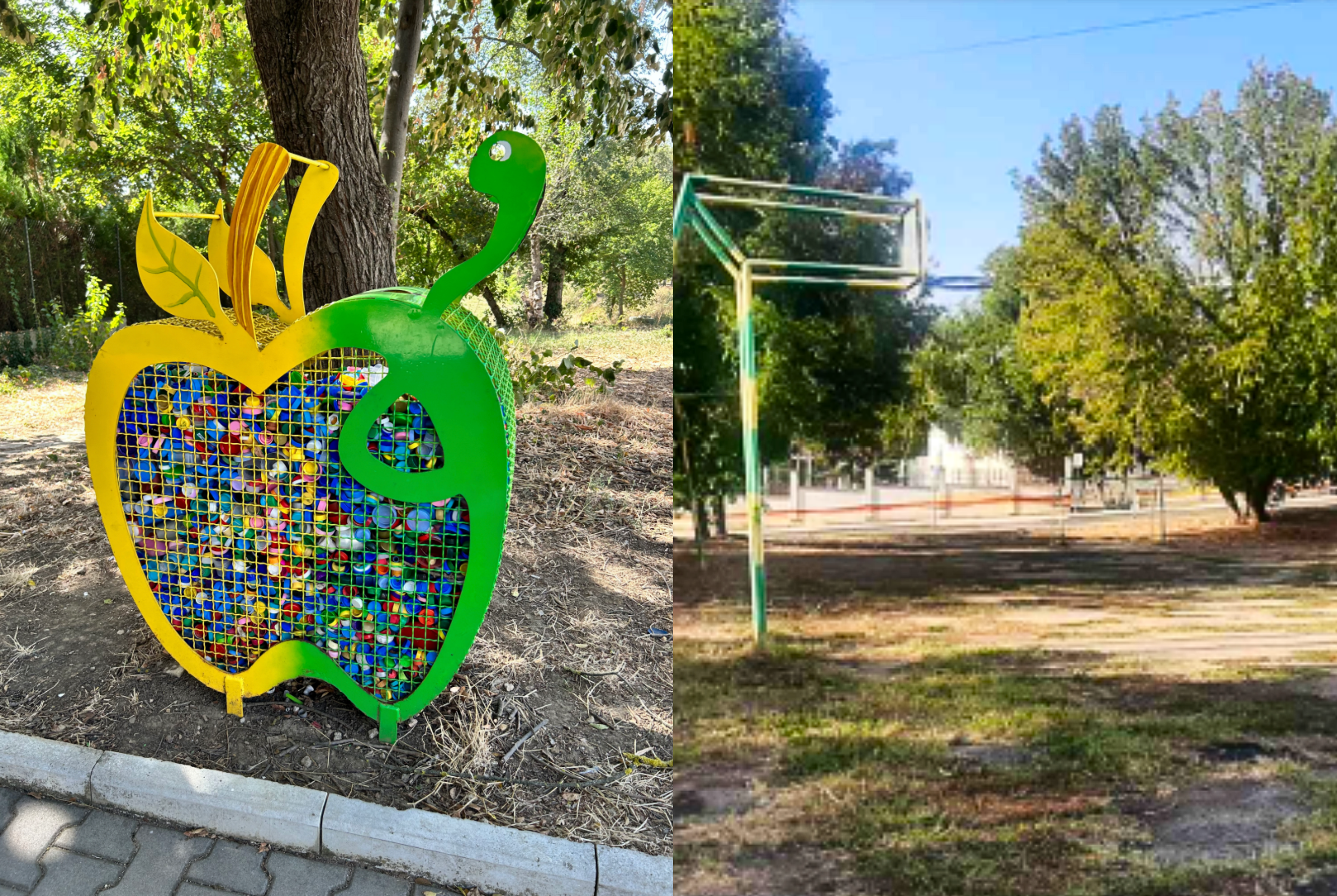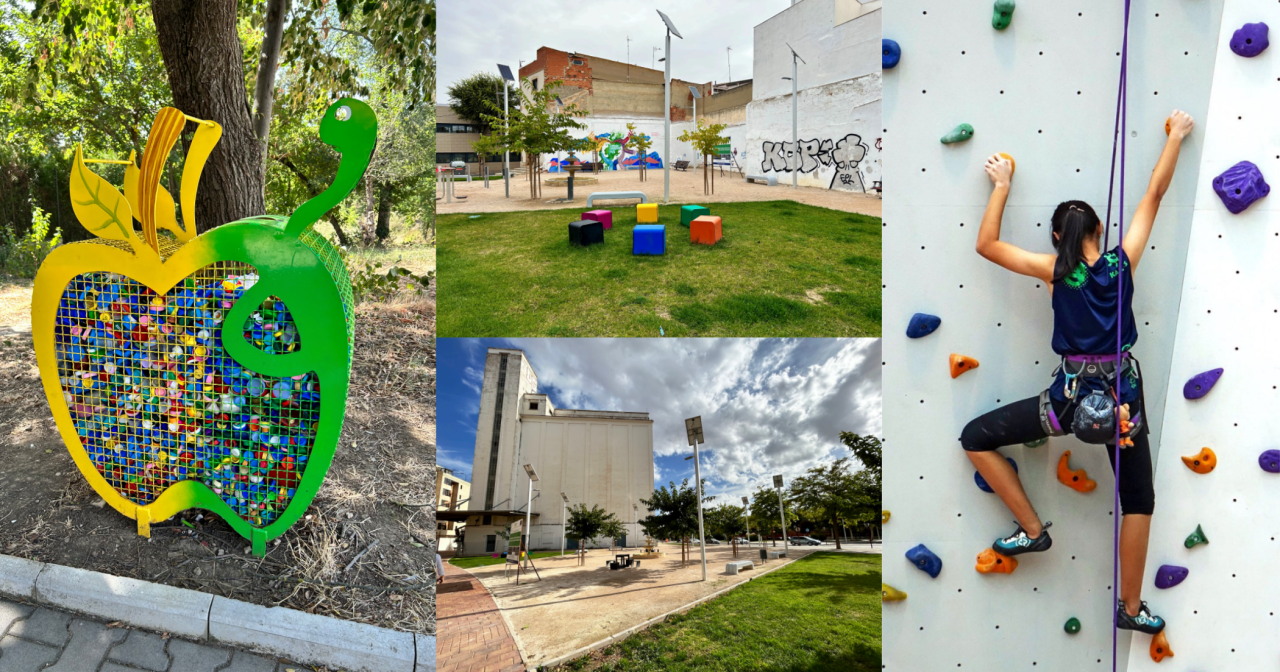From 26 July–11 August 2024, all eyes will be on Paris for the Summer Olympics. From the Olympic Village to the opening ceremony on the Seine… Paris is following other host cities, using the big games to revitalise and reimagine the city landscape.
What is the link between sports and urban regeneration? Discover how nine cities are spearheading change, leveraging the potential of youth and innovative urban approaches to shape a brighter future through the Re-Gen URBACT Network.
Youth discomfort and abandoned public spaces
Adolescents, particularly – but not only – those living on the outskirts of cities or in disadvantaged districts, are confronted with a multitude of personal challenges, spanning from educational poverty and mental health diseases to a lack of secure and quality public spaces for socialising and engaging in recreational activities. Inadequate educational opportunities and limited access to facilities can exacerbate the feelings of disengagement and discontent among the youth.
Neglected and desolate public spaces represent a threat to social cohesion and directly impact the well-being and quality of life of the resident communities, particularly young people. These abandoned spaces provide fertile ground for multifunctional inclusive places for street sport, cultural and recreational activities directly promoted and managed by youngsters.
Whether alienation or abandonment, there is a clear benefit in simultaneously addressing youth engagement and urban renewal.
Re-Gen solutions: Integrated Action Plans that combine sports, aesthetics and ethics
The Re-Gen URBACT Network comprises Verona (IT), as Lead Partner, Albacete (ES), Corfu (EL), Daugavpils (LT), Dobrich (BG), Milan (IT), Pula (HR), Vila Do Conte (PT) and Lezha (AL). Together, these cities are vaulting sports-based solutions for inclusive community development and revitalisation. Abandoned public spaces are being repurposed into vibrant urban areas for cultural and recreational activities, known as ‘Urban Sports Hubs’.
Echoing the principles of the New European Bauhaus, Urban Sports Hubs draw on sustainable and inclusive design elements while also prioritising aesthetics and ethics. Collaborating with local stakeholders and young individuals, Re-Gen cities work together to strategise and reimagine abandoned spaces. What makes Urban Sports Hubs a particularly unique concept is that they are promoted and managed by young people. By harnessing the collective energy, innovative ideas, and enthusiasm of the youth and various stakeholders, these initiatives pave the way for a reimagined urban landscape—a landscape that thrives on inclusivity, creativity, and community cohesion.
What makes an Urban Sports Hub?
As part of the Network, each city is responsible for developing a plan of action to transform derelict or under-used public spaces in ways that are attuned to the particular issues facing youths ages 10–18 in their different cities. Urban Sports Hubs are characterised by being multifunctional places that are catalysts for healthy lifestyles and opportunities for creative and active street education; they are catalysts for young people and for the entire neighbourhood community, they are designed and managed to be accessible to all without gender or disability discrimination. They are envisioned as inclusive beautiful places where young individuals find an outlet for healthy recreation while fostering community connections. Beyond their function as sporting venues, these hubs aspire to become an attractive place where the community converges, interacts, and thrives. They embody a vision for urban communities characterised by active involvement, pride, and a promising future.
Parque Linea in Albacete (ES) and Corfu’s Prison Park (a park that surrounds a prison) are just a selection of examples from the partner cities, whereby urban transformation is reinforced by youth-oriented sports and educational spaces.
Yet not all Urban Sports Hubs emerge from abandoned or degraded spaces. Some have emerged in the wake of natural disasters; for Lezha (AL), several schools and public buildings were left abandoned after an earthquake. Since then, through the Re-Gen Network, efforts have been made to repurpose the outdoor spaces of these buildings for activities like street basketball.
Co-designing a city: amplifying youth voices in urban regeneration
Through the engagement of youth and diverse stakeholders, these hubs instil a sense of collective responsibility and communal ownership in younger generations. This collective engagement goes beyond consultation; it encompasses active participation in the co-designing, co-creating, and co-managing of public spaces, fostering a sense of shared ownership, leading to a collective responsibility in managing public spaces as common goods belonging to the urban communities. In this sense, young people benefit directly from Urban Sports Hubs, but they also have a lot to contribute in terms of local development. More specifically, partners in the Re-Gen Network are actively engaging adolescents in local development initiatives. This can take the form of hackathons, community events, bootcamps and organised sports programmes.
At the start of 2024, Daugavpils (LT) hosted a ‘Mapping Future Spaces’ brainstorming with over 500 local youths. Students from grades 8-12 were asked to mark on neighbourhood maps the locations where they typically spend their time outdoors. The goal was to give a better idea of how younger generations live in, and experience, the city. Engaging youngsters, schools, cultural and sport associations in co-creating new Urban Sports Hubs redefines the urban participative process, fosters a sense of shared responsibility for common goods and promotes multifunctional spaces.

Apple Park in Dobrich, Bulgaria. Source: City of Dobrich.
Another example, Apple Park, an abandoned green area in Dobrich (BG), was revitalised based on a proposal from a young architect, who brought her design expertise and experience to revive the area.
To ensure youth engagement, it is important to involve the right NGOs and local organisations. In Milan (IT), local NGOs such as Comunità Nuova and Equa, the voluntary association Kayros, secondary schools, and the Municipality of Milan's territorial social services, are considering the concept of engaging young people in the care and activation of public spaces, providing necessary equipment to support these efforts.
A vibrant, inclusive horizon
Stated simply, remaking abandoned public spaces into Urban Sports Hubs can be appreciated as a solution to a host of multifaceted urban challenges, from youth discomfort to urban degradation as well as the lack of spaces for young people. Beyond conventional sports arenas, Urban Sports Hubs are conceived as dynamic community places, promoting not only street sports but also cultural events, interactive forums, and active civic engagement.
These transformative Re-Gen perspectives offer a beacon of hope, redefining the narrative of neglected urban spaces from blighted areas to platforms for regeneration and rejuvenation. The Urban Sports Hubs epitomise an innovative vision for urban regeneration, transcending mere physical spaces to become lively arenas for social interaction and community empowerment. Moreover, these hubs exemplify the potential of collective action, youth engagement, and innovative urban planning in revitalising overlooked areas into thriving centres of community life.
Re-Gen is one of 30 URBACT Action Planning Networks running from June 2023 to December 2025.
Originally submitted by Raffaella Lioce on 05/12/2023.


